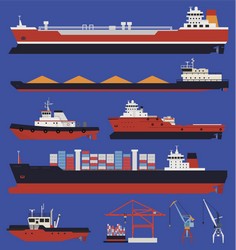How human error aboard a ship can be mitigated by its design
Some of the errors attributed to the crew, both deck officers and engineers, are the result of such global design factors (GDFs) as motion, noise, vibration and deck layout. The EU-funded FAROS(opens in new window) (Human factors in risk-based ship design methodology) project explored the relationship between human performance failure and the design features of a ship. Building on previous projects, it specifically focused on early design stages such as concept design, for drastic design modifications at this stage can still be cost effective. Work began with an extensive literature review to quantify the causal link between GDFs and human performance, and then use this link to inform risk modelling. Results show that detailed reporting of accidents, incidents and near misses has to be significantly improved. In addition, basic research has to be undertaken that focuses on factors shaping cognitive human performance in the maritime sector. Project partners developed an innovative human reliability model and integrated it within risk models. The human reliability models can be applied to improve the operational efficiency and well-being of crews during normal operation of ships. The risk models were then applied to the risk-based design process to achieve and demonstrate design improvements. The risk models were developed for four main maritime hazards: collision, grounding, fire and personal injuries. The models differentiate between various design alternatives. When applied, the risk models showed significant design improvements. The optimisation of tankers boosted economic and environmental performance of the baseline designs by 90 % when considering through-life operation and 11 % for air emissions. In addition, the optimisation of roll-on/roll-off ships reduced total risk and improved economic and environmental performance by up to 67 %, 3 % and 4 %, respectively. FAROS results will offer improvements to ship design processes, leading to safer ships. These improvements will also be helpful while developing more effective safety procedures and better work and living conditions on board.




